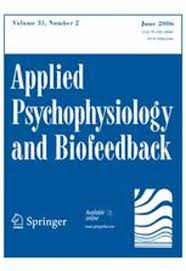Resultaten Onderzoek
U kunt publicaties vinden door te kiezen voor een categorie of een steekwoord. Alle artikelen uit betreffende categorie of met betreffend steekwoord verschijnen dan hier beneden.
Categorieën
Steekwoorden
Categorieën
Steekwoorden
- Toon alle
- ADHD
- Angst/Paniek
- Bloeddruk
- Burnout
- Chronische pijn
- Cognitieve functie
- Cortisol/DHEA
- Dementie
- Depressie
- Diabetes
- Global Coherence
- Hart- & Vaatziekten
- Intuitie & Bewustzijn
- Kanker
- Kinderen/jeugd
- Kosten
- Leiderschap
- Meditatie/Mindfulness
- Metabool syndroom
- Obesitas/eetstoornis
- PTSS
- Schizofrenie
- Slaap & vermoeidheid
- Social Coherence
- Stress
- Veerkracht
- Wetenschap HRV & Coherentie
- Zwangerschap
Effect of Quick Coherence Technique on Psychophysiological Coherence, Heart Rate, Stress, Anxiety, Depression and Feeling State in Young Adults in India

HeartMath technology is an innovative technique to improving emotional mental health. A small-scale study was conducted to investigate the effect of quick coherence technique on psychophysiological coherence, stress, anxiety, depression and feeling state in young adults in India. Present study is in line with the past research done by S.D.Edwards (2016) on ‘Influence of Heartmath Quick Coherence Technique on Psychophysiological Coherence and Feeling States’. Six postgraduate students who complained of stress, anxiety and depression were
lees verder...Neurophysiological Approach by Self-Control of Your Stress-Related Autonomic Nervous System with Depression, Stress and Anxiety Patients.

Abstract: Background: Heart Rate Variability Biofeedback (HRVB) is a treatment in which patients learn self-regulation of a physiological dysregulated vagal nerve function. While the therapeutic approach of HRVB is promising for a variety of disorders, it has not yet been regularly offered in a mental health treatment setting. Aim: To provide a systematic review about the efficacy of HRV-Biofeedback in treatment of anxiety, depression, and stress related disorders. Method: Systematic review in PubMed and Web of Science
lees verder...Heart Rate Variability Biofeedback Improves Emotional and Physical Health and Performance: A Systematic Review and Meta Analysis

We performed a systematic and meta analytic review of heart rate variability biofeedback (HRVB) for various symptoms and human functioning. We analyzed all problems addressed by HRVB and all outcome measures in all studies, whether or not relevant to the studied population, among randomly controlled studies. Targets included various biological and psy-chological problems and issues with athletic, cognitive, and artistic performance. Our initial review yielded 1868 papers, from which 58 met inclusion criteria. A significant small to moderate effect size was found favoring HRVB, which does not differ from that of other effective treatments. With
lees verder...Heart Rate Variability, Health and Well-Being: A Systems Perspective

The development of a new tool, analytic device, or approach frequently facilitates rapid growth in scientific understanding, although the process is seldom linear. The study of heart rate variability (HRV) defined as the extent to which beat-to-beat variation in heart rate varies, is a rapidly maturing paradigm that integrates health and wellness observations across a wide variety of biomedical and psychosocial phenomena and illustrates this nonlinear path of development. The utility of HRV as an analytic and interventive technique goes far beyond its original application as a robust predictor of sudden cardiac death. This Research Topic aims to provide a conceptual
lees verder...The Impact of HeartMath Resiliency Training on HealthCare Providers
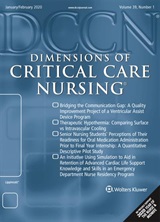
Background: Health care providers must think clearly and make critical decisionsunder stressful circumstances. Providing effective strategies for managing stress in the moment helps mitigate the physical, emotional, and psychological impacts associated with caring for others and promotes resiliency. Staff may also utilize these techniques with patients and their families to help alleviate the symptoms of stress that may be experienced as the result of illness. Aim: The purpose of this study was to measure whether HeartMath techniques reduce stress and improve resiliency in health care providers. Methods: Study participants were asked to complete the Personal and Organizational
lees verder...Heart Rate Variability: New Perspectives on Assessment of Stress and Health Risk at the Workplace

Introduction: Cardiovascular diseases are the highest cause of death in the world. Many of these deaths may be workplace related. Long hours at work seem to be influencing the increased risks of heart diseases. Workplace stress can be defined as the “discrepancies between the physiological demands within a workplace and the inability of employees to either manage or cope with such work demands.” The varied nature and perception of stress are exemplified from literature that shows stress being either a stimulus, or a response, or a stimulus–
lees verder...Combining Biofeedback with Stress Management Interventions: A Systematic Review of Physiological and Psychological Effects
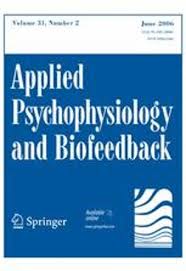
Current mental healthcare systems experience difficulties meeting the challenges of a growing population with elevated stress symptoms. Outpatient stress management interventions have already proven to be effective in routine care and recent technological advances now allow to expand such interventions, for example by adding a physiological component like biofeedback. Adding biofeedback to stress management interventions appears promising, but there is a lack of insight into the general conceptualization and evaluation of the resulting
lees verder...
Self-Regulatory Biofeedback Training: An Intervention to Reduce School Burnout and Improve Cardiac functioning in college students

With the detrimental relationship between school burnout and physiological and cognitive functioning now well documented, interventions to ameliorate school burnout symptomology are needed. This study examined the effectiveness of a self-regulatory biofeedback intervention program (Heart RateVariability Coherence Biofeedback Training [HRVCB]) in contrast to a protocol demonstrated to produce cognitive and physiological improvements (a high intensity interval training protocol [HIIT]) as well as a wait-list control condition at decreasing school
lees verder...Heart Rate Variability and Cognitive Bias Feedback Interventions to Prevent Post-Deployment PTSD: Results from a Randomized Controlled Trial

There is a long history of pre-deployment PTSD prevention efforts in the military and effective pre-deployment strategies to prevent post-deployment PTSD are still needed. Materials and Methods: This randomized controlled trial included three arms: heart rate variability biofeedback (HRVB), cognitive bias modification for interpretation (CBM-I), and control. The hypothesis was that pre-deployment resilience training would result in lower post-deployment PTSD symptoms compared with control. Army National Guard soldiers (n =
lees verder...Groepsverslag Stress REM vragenlijsten mei 2018

Het Soffos onderzoeksinstituut heeft in 2018 de resultaten van 1129 HeartMath coaching interventies geevalueerd. De slotconclusie van het rapport is dat de cliënten wezenlijk verbeterd zijn in hun omgang met stress door de coaching volgens de HeartMath methodiek. Bij alle dimensies is sprake van een significante verbetering van de gemiddelde scores op tijdstip T2 ten opzichte van tijdstip T1. De P-waarden zijn daarbij allen onder de 0,001, dit betekent dat de kans dat de uitslag beïnvloed wordt door andere omstandigheden dan de HeartMath coaching marginaal is.
lees verder...The effect of heart rate variability biofeedbacktraining on stress and anxiety: a meta-analysis
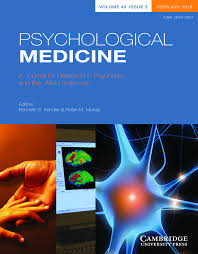
Background.Some evidence suggests that heart rate variability (HRV) biofeedback might be an effective way to treat anxiety and stress symptoms. To examine the effect of HRV biofeedback on symptoms of anxiety and stress, we conducted a meta-analysis of studies extracted from PubMed, PsycINFO and the Cochrane Library.Methods.The search identified 24 studies totaling 484 participants who received HRV biofeedback training for stress and anxiety. We conducted a random-effects meta-analysis. Results.The pre-post within-group effect size
lees verder...The aim of this pilot study was to investigate the effects of an intervention consisting of mental coaching combined with either electro encephalogram (EEG) alphapower feedback or heart rate variability (HRV) feedback on HRV, EEG outcomes and self-reported factors related to stress, performance, recovery and sleep quality in elite athletes. A prospective pilot study was performed with two distinct cohorts. Soccer players were provided with four sessions of mental coaching combined with daily HRV biofeedback (Group A); track and field
lees verder...Building Resilience in an Urban Police Department

Objective:The aim of this study is to examine a resilience training intervention that impacts autonomic responses to stress and improves cardiovascular risk, psychological, and physiological outcomes in police. Methods: Officers [(n=38) 22 to 54 years] modified emotional and physical responses to stress using self-regulation. Measurements include psychological and physiological measures [eg, heart rate variability (HRV), blood pressure, C-reactive protein)] obtained at three time intervals. Results: Age was significantly (P<0.05) associated with
lees verder...Effectiviteit van hartritmevariabiliteit-biofeedback als aanvulling bij behandeling van depressie en posttraumatische stressstoornis
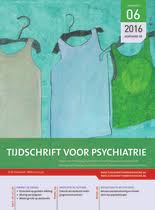
ACHTERGROND: Hartritmevariabiliteitbiofeedback (hrvb) is een non-invasieve behandelwijze waarbij de patiënt verondersteld wordt te werken aan zelfregulatie van een verstoorde N.-vagusfunctie. De behandeling met hrvb is wellicht klinisch relevant bij stressgerelateerde stoornissen, maar wordt weinig toegepast in de reguliere behandeling. DOELOnderzoek van effectiviteit van hrvb als mogelijk psychofysiologische aanvulling bij behandeling van angst, depressie en de posttraumatische stressstoornis (ptss). METHODE:
lees verder...Physical Activity, Mindfulness Meditation, or Heart RateVariability Biofeedback for Stress Reduction

Abstract: In contemporary western societies stress is highly prevalent, therefore the need for stress-reducingmethods is great. This randomized controlled trial compared the efficacy of self-help physical activity (PA), mindfulness meditation (MM), and heart rate variability biofeedback (HRV-BF) in reducing stress and its related symptoms. We randomly allocated 126 participants to PA, MM, or HRV-BF upon enrollment, of whom 76 agreed to participate. The interventions consisted of psycho-education and an introduction to the specific
lees verder...Applying Resilience Promotion Training Among Special Forces Police Officers

Police Special Forces (a.k.a. special weapons and tactics [SWAT]) officers are tasked with responding to the most critical situations, including incidents that require specialized skills and equipment beyond typical policing activities. In this study, we tested the feasibility of applying Arnetz and colleagues’ resilience promotion training that was developed for patrol officers to SWAT team officers (n = 18). The resilience promotion training program included psychoeducation focused on police stress and resilience, and the practice of resilience
lees verder...Biofeedback Intervention for Stress, Anxiety, and Depression among Graduate Students in Public Health Nursing

Globally, graduate students have been found to have high prevalence of mental health problems. With increasing severity of mental health problems on university campuses and limited resources for mental health treatment, alternative interventions are needed.This study investigated the use of biofeedback training to help reduce symptoms of stress, anxiety, and depression. A sample of 60 graduate students in public health nursing was randomly assigned to either the biofeedback intervention or the control group. Results indicated that biofeedback
lees verder...An Institutional Case Study: Emotion Regulation With HeartMath at Santa Cruz County Children's Mental Health

This case study from Santa Cruz County Children’s Mental Health Agency (CMH), California, reviews the use of measurement of heart rate variability (HRV) to enhance emotional regulation of patients. CMH serves seriously emotionally disturbed youths, many of whom have been separated from their parents for a prolonged period or have been vulnerable without the consistent presence of their caregivers. In this study, the HRV pattern was calculated as high coherence, medium coherence, or low coherence. According to Thurber et al, heart
lees verder...Police department Personnel Stress Resilience training: An Institutional Case Study

The objective of this case study was to test the impact in law enforcement personnel of an innovative self-regulation and resilience building program delivered via an iPad (Apple Inc, Cupertino, California) app and personal mentoring. The Stress Resilience Training System (SRTS) app includes training on stress and its effects, HRV coherence biofeedback, a series of HeartMath self-regulation techniques (The Institute of HeartMath, Boulder Creek, California), and HRV-controlled games. The stressful
lees verder...Effectiveness of emWave Biofeedback in Improving Heart RateVariability Reactivity to and Recovery from Stress
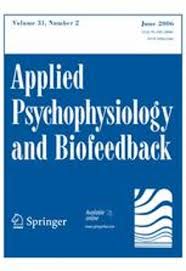
The current study examined the efficacy of heart rate variability (HRV) biofeedback using emWave, a publicly available biofeedback device, to determine whether training affected physiological tone and stress responses. Twenty-seven individuals aged 18–30 years were randomized to a treatment or no-treatment controlgroup. Treatment participants underwent 4–8 sessions of emWave intervention, and all participants attended pre-treatment and post-treatment assessment sessions during which acute stressors were
lees verder...Stress Management Based on Trait-Anxiety Levels and Sleep Quality in Middle-Aged Employees Confronted with Psychosocial Chronic Stress
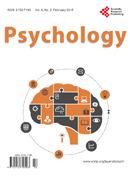
A stress management program using cardiac coherence was implemented after an organizational down-sizing. The study was conducted in nine voluntary workers in order to evaluate the efficiency of the program. A baseline evaluation was conducted on psychological variables (anxiety, perceived-stress, well- being and sleep), endocrine assessments (urinary cortisol excretion, alpha-amylase and salivary concentrations) and physiological recordings (sleep and heart rate variability). The low number of
lees verder...Biofeedback Intervention for Stress and Anxiety among Nursing Students: A Randomized Controlled Trial

Purpose.It has been well documented that nursing students across the world experience stress and anxiety throughout their education and training. The purpose of this randomized controlled study is to investigate the impact of biofeedback intervention program on nursing students’ levels of stress and anxiety during their first clinical training. Methods.Participants consisted of 60 second-year baccalaureate nursing students. The 30 participants in the biofeedback group received training on how to use the biofeedback device to assist in stress and
lees verder...The effect of a biofeedback-based stress management tool on physician stress: a randomized controlled clinical trial
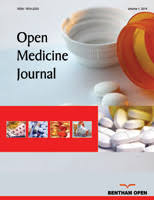
Background: Physicians often experience work-related stress that may lead to personal harm and impaired profes-sional performance. Biofeedback has been used to manage stress in various populations. Objective: To determine whether a biofeedback-based stress management tool, consisting of rhythmic breathing, actively self-generated positive emotions and a portable biofeedback device, reduces physician stress. Design: Randomized controlled trial measuring efficacy of a stress-reduction intervention over 28 days, with a
lees verder...Pilotonderzoek naar de effectiviteit van een hartritmevariabiliteit-training (Master thesis)
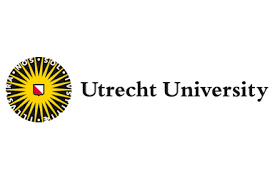
Inleiding: De hartcoherentietraining is gebaseerd op het beïnvloeden van de hartritme-variabiliteit(HRV). Aan de training worden stressverminderende eigenschappen toegekenddie een positieve invloed zouden hebben op het psychisch welbevinden. De hoofdvraag van het huidige onderzoek betreft of de hartcoherentietraining effectief is in het verbeteren van het psychisch welbevinden. De effecten van de hartcoherentietraining zullen worden vergeleken met de effecten van een mindfulnesstraining.
lees verder...Coherence and Health Care Cost -- RCA Actuarial Study: A Cost-Effectiveness Cohort Study

Chronic stress is among the most costly health problems in terms of direct health costs, absenteeism, disability, and performance standards. The Reformed Church in America (RCA) identified stress among its clergy as a major cause of higher-than-average health claims and implemented HeartMath (HM) to help its participants manage stress and increase physiological resilience. The 6-week HM program Revitalize you! was selected for the intervention including the emWave Personal Stress Reliever technology.
lees verder...Cardiac Coherence and Posttraumatic Stress Disorder in Combat Veterans

Background • The need for treatment of posttraumatic stress disorder (PTSD) among combat veterans returning from Afghanistan and Iraq is a growing concern. PTSD has been associated with reduced cardiac coherence (an indicator of heart rate variability [HRV]) and deficits in early stage information processing (attention and immediate memory) in different studies. However, the co-occurrence of reduced coherence and cognition in combat veterans with PTSD has not been studied before. Primary Study Objective • A pilot study was
lees verder...Project Peak Performance & Reducing Stage Fright

Podiumangst komt veel voor in de beroepspraktijk van musici en wordt vaak niet op een effectieve manier behandeld of onderkend. Een belangrijke reden daarvoor is dat het onderwerp nog steeds met taboe is omgeven. In samenwerking met GGZ Heerenveen en ‘Complete Coaching’, een instituut voor onder meer coaching en psychotherapie, is onder auspiciën van het lectoraat Lifelong Learning in Music &the Artseen onderzoeksproject opgezet, gericht op het omgaan met stress bij studenten van het Prins Claus Conservatorium. Dit project
lees verder...New Hope for Correctional Officers: An Innovative Program for Reducing Stress and Health Risks

This study investigated the impact of a new stress management program on physiological and psychological stress and health risk factors among 75 correctional officers. The experimental group received training in emotion self-regulation techniques intended to reduce stress and health risk factors. Practice of the techniques was enhanced by heart rate variability feedback, which helped participants learn and sustain use of the self-management tools. Measures of physiological stress included cortisol, DHEA, cholesterol, triglycerides, fasting glucose
lees verder...Kan stress verminderen door het toepassen van hartcoherentie- onderzoek bij moeders van onrustige ki

Samenvatting: In dit onderzoek wordt de mens gezien als een dynamisch systeem, dat functioneert in voortdurend veranderende omstandigheden en streeft naar evenwicht. Binnen de grenzen van een evenwichtstoestand kan het zelfregulerend vermogen de mens in evenwicht houden, maar als de balans door nieuwe of ‘bedreigende’ omstandigheden verstoord raakt, moet een aanpassingsstrategie ontwikkeld en uitgevoerd worden voor herstel van het evenwicht. Deze toestand van onbalans wordt ‘stress’ genoemd en kan zowel op
lees verder...The Impact of a New Emotional Self-Management Program on Stress, Emotions, Heart Rate Variability, DHEA and Cortisol
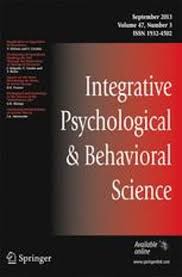
This study examined the effects on healthy adults of a new emotional self-management program, consisting of two key techniques,"Cut-Thru" and the "Heart Lock-In." These techniques are designed to eliminate negative thought loops and promote sustained positive emotional states. The hypotheses were that training and practice in these techniques would yield lowered levels of stress and negative emotion and cortisol, while resulting in increased positive emotion and DHEA levels over a one-month period. In addition, we
lees verder...The Effects of Emotions on Short-Term Power Spectrum Analysis of Heart Rate Variability

This study utilizes heart rate variability analysis to examine a new method of intentionally shifting emotional states, and demonstrates that positive emotions lead to alterations in sympathovagal balance that may be beneficial in the treatment of hypertension. Anger, on the other hand, was shown to significantly increase sympathetic activation.
lees verder...
